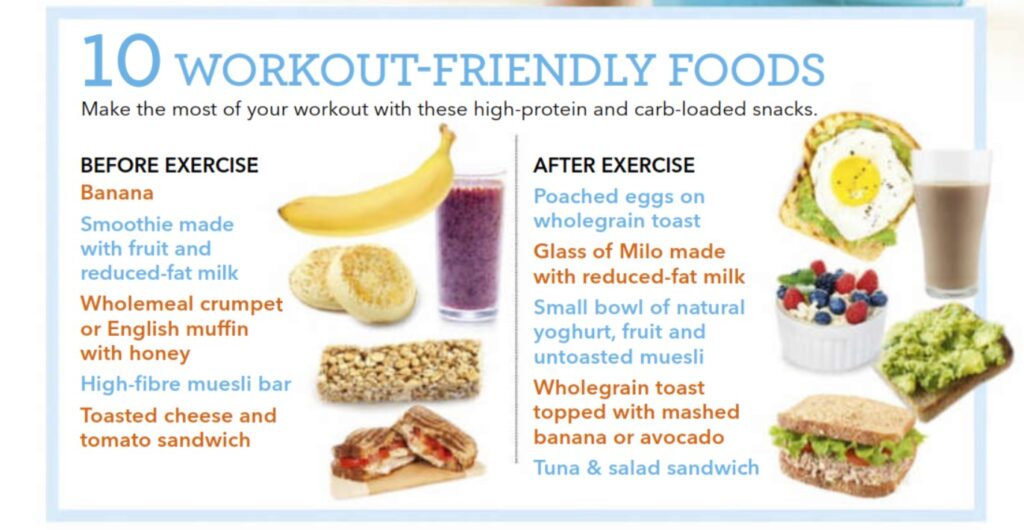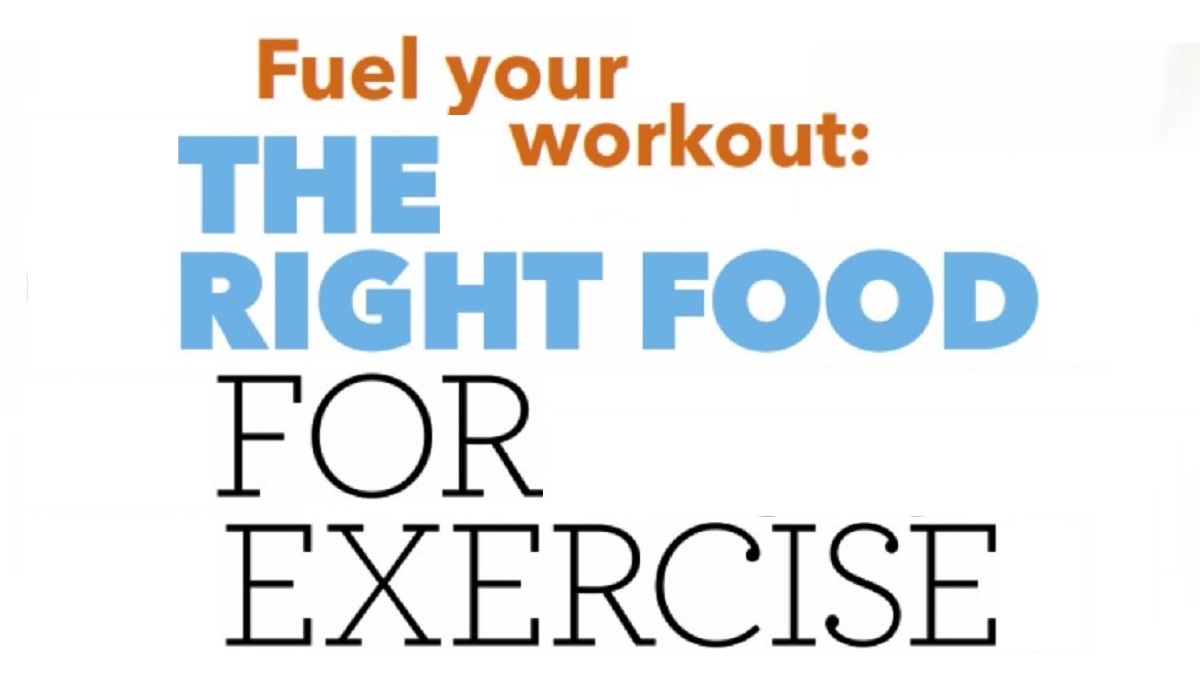Whether you hit the gym every day, stretch into Pilates occasionally, or walk your way to vitality, what you eat before and after exercise can make a huge difference to your performance and recovery. Make sure to give yourself the right nourishment at the right time and your body will
work at its best.
To eat or not to eat?
When preparing your body for exercise, the amount of energising food you need depends on how active you intend to be. If you’re working out for less than an hour, you don’t necessarily have to eat beforehand. Going for a walk before brekkie, for instance, can help the body burn fat simply because it can’t use food as fuel. because it can’t use food as fuel. In fact, our muscles store enough energy for about 90 minutes of vigorous exercise, so feel free to enjoy long early-morning walks on an empty stomach. If you plan to be active for more than an hour, or if you want to step up the intensity, you can prime your body for success by eating a small snack an hour or two in advance. The best foods for exercise should include carbs and be easy to digest. You don’t want to upset your tummy by experimenting with new foods, so stick to simple foods such as a small bowl of porridge, a slice of toast or a banana. You will also want to steer clear of fatty foods, which the body is slow to digest and can leave you feeling uncomfortable. step up the intensity, you can prime your body for success by eating a small snack an hour or two in advance. The best foods for exercise should include carbs and be easy to digest. You don’t want to upset your tummy by experimenting with new foods, so stick to simple foods such as a small bowl of porridge, a slice of toast or a banana. You will also want to steer clear of fatty foods, which the body is slow to digest and can leave you feeling uncomfortable.
Refuel and repair
You need to replenish your body’s energy stores after lengthy or strenuous physical activity, whether it’s a punishing gym class, a taxing bushwalk or a stint of energetic housework. Your best strategy to properly refuel is to eat a snack or a meal about 30 minutes to two hours after exercising. Within that timeframe, your body will direct the food straight towards muscle repair. So if you’re working out in between meal times, stash some portable snacks in your car, gym bag or handbag. Wondering about those ‘bodyfriendly’ protein shakes, bars, balls and supplements? Leave them on the shelf. Yes, protein helps repair muscles, but real foods such as eggs, milk and nuts, give you the same health benefits without the hefty price tag and extra kilojoules. A common mistake is treating post-workout meals as a licence to overeat. We’re not saying you can’t indulge in the occasional post-gym café breakfast with friends, but using exercise as an excuse to gorge on cake and biscuits will very quickly undo all of your hard work! Also, it won’t
equip you with the nutrients needed to nail your next workout.
Rehydrate
Exercise can be very dehydrating, especially on hot days when you are more likely to sweat a lot. On very hot days when you’re going to be out exposed to full sun, keep a water bottle on hand so you can take sips while you’reon the move. Also, make an effort to keep drinking more than usual throughout the rest of the day. As a general rule, you should aim to drink half to one cup of water every 20 minutes while exercising. And leave the sports drinks to ultra-endurance athletes — water provides all the hydration you need, without the sugar!
Don’t sweat it!
The snacks we choose before and after exercise are only part of the picture. In the long run, it’s the good food choices we make over the entire day that lead to a healthy body.


